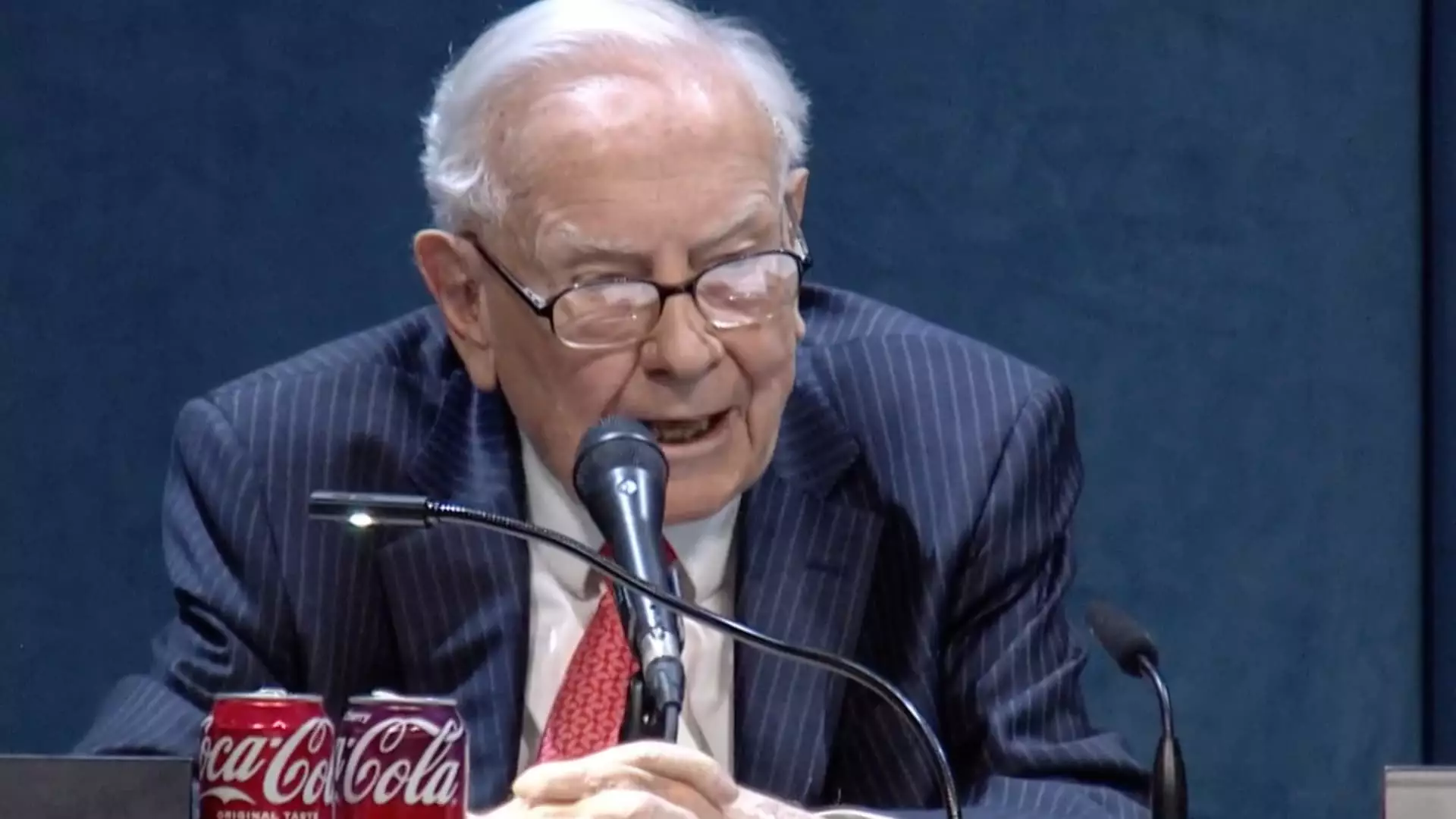At the heart of the American economic dialogue, renowned investor Warren Buffett has made strong objections against the current administration’s approach to trade, characterizing the imposition of punitive tariffs as a significant misstep. While he refrained from mentioning President Trump by name, his critique echoed perhaps louder than any political connotation, resonating deeply in the psyche of a nation embroiled in both trade disputes and economic uncertainty. This divergence from a historically collaborative trade philosophy has prompted Buffett to argue that “trade should not be a weapon,” illuminating a crucial point about the global economy’s interconnected nature.
Buffett’s assertion carries weight. It implies that the mere act of imposing tariffs doesn’t just affect trade balances; it alters relationships and engenders distrust. For an economy that has historically thrived on connections and collaborative ventures, such a policy shift can be catastrophic. His statement becomes a rallying cry for the necessity of embracing globalization rather than retreating into a shield of insular policies. Given the complexities of contemporary economic interactions, advocates for open trade like Buffett remind us that economic prosperity does not have to come at the expense of others; rather, it can be a shared journey toward mutual benefits.
The Misguided Notion of a ‘Trade War’
Buffett stated that trade and tariffs can resemble acts of aggression—a notion that should unsettle any economist or political analyst. The simple fact is, a so-called “trade war” with an economic superpower like China can escalate rapidly, leading to potentially irreversible damage for economies on both sides. The retaliatory measures initiated by China, with punitive tariffs of their own, illuminate the precariousness of this approach. The stakes are high, and the American public needs to be aware of how quickly the results of such policies can change the very landscape of their everyday lives.
The domestic implications of these policies are stark. Tariffs meant to safeguard U.S. jobs could inadvertently push consumers towards higher prices and reduced choices, with corporations potentially shifting their focus to markets beyond American borders. In a vivid depiction of this dynamic, Buffett urges companies to play to their strengths while advocating for a collaborative international trade framework. This perspective, which emphasizes leveraging local strengths while fostering global partnerships, epitomizes a logical and pragmatic approach that a liberal economic stance might advocate.
Investment Sentiment and Economic Forecasting
Buffett’s commentary has broader implications for investors who look to his insights while navigating an increasingly volatile economic environment. The suspension of tariff increases may offer a semblance of market stabilization, but it is a short-term fix to a long-term predicament. Investors are keenly attuned to macroeconomic indicators, and Buffett’s unease reflects a larger uncertainty in the markets, further complicated by unexpected first-quarter GDP contraction.
The status of Berkshire Hathaway, with its diversified portfolio encompassing insurance, transportation, and energy, puts Buffett in a prime position to gauge economic health. However, with sudden stock disposals—over $134 billion within just the past year—the signals are mixed. The cash reserves of $347 billion symbolize a cautious approach in the face of uncertainty, but one cannot ignore the implications of defensive investment strategies that may indicate faltering confidence.
The Road Ahead: A Call for Pragmatism
For those who align with center-wing liberalism, Buffett’s viewpoint serves as an important reminder that practical governance often requires compromise and collaboration. A future marked by protectionist policies may cater to immediate political rhetoric, but it draws a dangerously high price in the form of economic discord, consumer dissatisfaction, and a delayed recovery.
Now, more than ever, we must consider how isolationist policies risk eclipsing the substantial gains we have made as a nation. It is imperative that policymakers heed calls for rational, open trade agreements that enhance the welfare of both American citizens and international counterparts. The fusion of economic engagement and mutual prosperity is not just a lofty ideal, but a necessity amidst the complexities of global trade.
Warren Buffett, now in his 94th year, brings a seasoned perspective that challenges the prevailing national discourse on tariffs. His insights are a call not only to listen but to act—to foster a future where trade and diplomacy become guiding principles rather than instruments of division. Understanding trade in this nuanced framework is crucial to ensuring that America’s economic future remains progressively bright.

